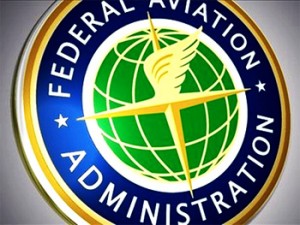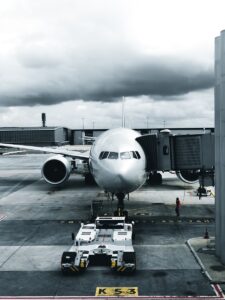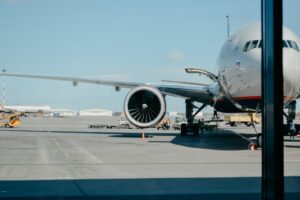TEXAS
A federal grand jury returned an indictment Thursday charging a former Chief Technical Pilot for The Boeing Company (Boeing) with deceiving the Federal Aviation Administration’s Aircraft Evaluation Group (FAA AEG), officials stated.
 The allegations are based in connection with the FAA AEG’s evaluation of Boeing’s 737 MAX airplane, and scheming to defraud Boeing’s U.S.‑based airline customers to obtain tens of millions of dollars for Boeing.
The allegations are based in connection with the FAA AEG’s evaluation of Boeing’s 737 MAX airplane, and scheming to defraud Boeing’s U.S.‑based airline customers to obtain tens of millions of dollars for Boeing.
According to court documents, Mark A. Forkner, 49, formerly of Washington State and currently of Keller, Texas, allegedly deceived the FAA AEG during the agency’s evaluation and certification of Boeing’s 737 MAX airplane.
As alleged in the indictment, Forkner provided the agency with materially false, inaccurate, and incomplete information about a new part of the flight controls for the Boeing 737 MAX called the Maneuvering Characteristics Augmentation System (MCAS).
As a result of his alleged deception, a key document published by the FAA AEG lacked any reference to MCAS.
 In turn, airplane manuals and pilot-training materials for U.S.-based airlines lacked any reference to MCAS — and Boeing’s U.S.-based airline customers were deprived of important information when making and finalizing their decisions to pay Boeing tens of millions of dollars for 737 MAX airplanes.
In turn, airplane manuals and pilot-training materials for U.S.-based airlines lacked any reference to MCAS — and Boeing’s U.S.-based airline customers were deprived of important information when making and finalizing their decisions to pay Boeing tens of millions of dollars for 737 MAX airplanes.
“Forkner allegedly abused his position of trust by intentionally withholding critical information about MCAS during the FAA evaluation and certification of the 737 MAX and from Boeing’s U.S.‑based airline customers,” said Assistant Attorney General Kenneth A. Polite Jr. of the Justice Department’s Criminal Division.
Adding, “In doing so, he deprived airlines and pilots from knowing crucial information about an important part of the airplane’s flight controls. Regulators like the FAA serve a vital function to ensure the safety of the flying public. To anyone contemplating criminally impeding a regulator’s function, this indictment makes clear that the Justice Department will pursue the facts and hold you accountable.”
 According to court documents, Boeing began developing and marketing the 737 MAX in and around June 2011.
According to court documents, Boeing began developing and marketing the 737 MAX in and around June 2011.
The FAA AEG was responsible for determining the minimum level of pilot training required for a pilot to fly the 737 MAX for a U.S.-based airline, based on the nature and extent of the differences between the 737 MAX and the prior version of Boeing’s 737 airplane, the 737 Next Generation (NG).
At the conclusion of this evaluation, the FAA AEG published the 737 MAX Flight Standardization Board Report (FSB Report), which included, among other things, the FAA AEG’s differences-training determination for the 737 MAX, as well as information about differences between the 737 MAX and the 737 NG.
 All U.S.-based airlines were required to use the information in the 737 MAX FSB Report as the basis for training their pilots to fly the airplane.
All U.S.-based airlines were required to use the information in the 737 MAX FSB Report as the basis for training their pilots to fly the airplane.
As Boeing’s 737 MAX Chief Technical Pilot, Forkner led the 737 MAX Flight Technical Team and was responsible for providing the FAA AEG with true, accurate, and complete information about differences between the 737 MAX and the 737 NG for the FAA AEG’s evaluation, preparation, and publication of the 737 MAX FSB Report.
In and around November 2016, Forkner discovered information about an important change to MCAS. Rather than sharing information about this change with the FAA AEG, Forkner allegedly intentionally withheld this information and deceived the FAA AEG about MCAS.
 Because of his alleged deceit, the FAA AEG deleted all references to MCAS from the final version of the 737 MAX FSB Report published in July 2017.
Because of his alleged deceit, the FAA AEG deleted all references to MCAS from the final version of the 737 MAX FSB Report published in July 2017.
As a result, pilots flying the 737 MAX for Boeing’s U.S.‑based airline customers were not provided any information about MCAS in their manuals and training materials.
Forkner sent copies of the 737 MAX FSB Report to Boeing’s U.S.-based 737 MAX airline customers, but withheld from these customers important information about MCAS and the 737 MAX FSB Report evaluation process.
On or about Oct. 29, 2018, after the FAA AEG learned that Lion Air Flight 610 — a 737 MAX — had crashed near Jakarta, Indonesia, shortly after takeoff and that MCAS was operating in the moments before the crash, the FAA AEG discovered the information about the important change to MCAS that Forkner had withheld.
Having discovered this information, the FAA AEG began reviewing and evaluating MCAS.
On or about March 10, 2019, while the FAA AEG was still reviewing MCAS, the FAA AEG learned that Ethiopian Airlines Flight 302 — a 737 MAX — had crashed near Ejere, Ethiopia, shortly after takeoff and that MCAS was operating in the moments before the crash.
Shortly after that crash, all 737 MAX airplanes were grounded in the United States.
Forkner is charged with two counts of fraud involving aircraft parts in interstate commerce and four counts of wire fraud. He is presumed innocent unless proven guilty.
He is expected to make his initial court appearance on Friday in Fort Worth, Texas, before U.S. Magistrate Judge Jeffrey L. Cureton of the U.S. District Court for the Northern District of Texas.
If convicted, he faces a maximum penalty of 20 years in prison on each count of wire fraud and 10 years in prison on each count of fraud involving aircraft parts in interstate commerce.

